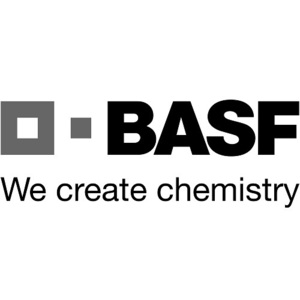BASF CircleStar catalyst converts ethanol to ethylene

October 19, 2022
BY BASF
BASF introduces CircleStar, an innovative dehydration catalyst to process renewable feedstocks. The novel star-shaped catalyst achieves a 99.5 percent electivity for the ethanol-to-ethylene (E2E) conversion. With an operating temperature that is more than 25°C lower compared to conventional processes, CircleStar helps to decrease the carbon footprint in the bio-ethylene value chain for products ranging from jet fuel to plastics by more than 10 percent while keeping the same performance.
The advanced performance of this innovative catalyst is due to its unique star shape that maximizes the active geometrical surface area for the reaction. In addition, the packed density in the reactor bed is significantly lower compared to conventionally shaped catalysts, which impacts the overall cost optimization of the reaction. The novel geometry also leads to a better mass transfer and a longer catalyst lifetime due to the beneficial operation temperature and pressure-drop profile.
The E2E process plays a fundamental role for the chemical industry to transform to climate neutrality and to achieve their net-zero targets. BASF has in-depth experience for more than 25 years in E2E with dedicated catalyst development and testing available. The existing Ethylene is 99 percent fossil-based while the BASF E2E catalyst is offering the possibility to change the Ethylene and its downstream value chain to make it bio-based. In this process, CircleStar helps to further decrease the CO2 emissions in the bio-based route by enabling lower temperature operations, longer lifetime and lower pressure drop in the catalyst bed.
“Our novel CircleStar for the bio-ethanol to bio-ethylene conversion has excellent product properties and helps our customers to significantly increase their production efficiency while reducing carbon emissions and supporting their net zero targets,” said Detlef Ruff, senior vice president, process catalysts at BASF.
Advertisement
Advertisement
Related Stories
Neste and FedEx, the world’s largest express cargo airline, have agreed on the supply of 8,800 metric tons (more than 3 million gallons) of blended Neste MY Sustainable Aviation Fuel to FedEx at Los Angeles International Airport (LAX).
The U.S. EPA on May 14 delivered two RFS rulemakings to the White House OMB, beginning the interagency review process. One rule focuses on RFS RVOs and the other focuses on a partial waiver of the 2024 cellulosic RVO.
The U.S. EPA on May 15 released data showing nearly 1.79 billion RINs were generated under the RFS in April, down from 2.09 million generated during the same month of last year. Total RIN generation for the first four months of 2025 was 7.12 billion.
Calumet Inc. on May 9 announced sustainable aviation fuel (SAF) capacity at its Montana Renewables biorefinery is expected to reach 120 MMgy to 150 MMgy sooner than previously reported for a fraction of the originally expected cost.
Tidewater Renewables on May 8 announced that its 3,000-barrel-per-day renewable diesel plant in Prince George, British Columbia, operated at 75% capacity during the first quarter, up from 71% during the same period of last year.
Upcoming Events










